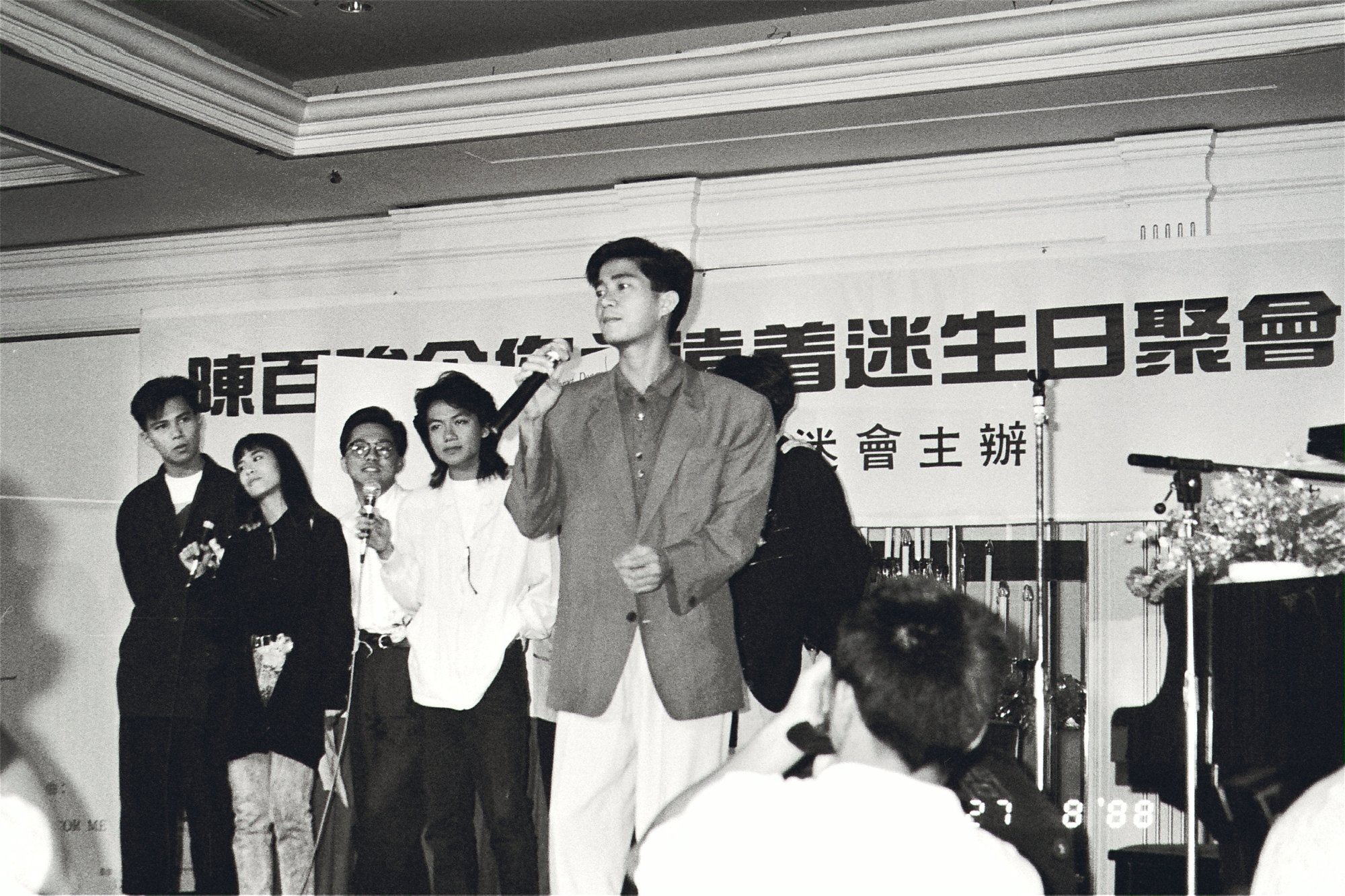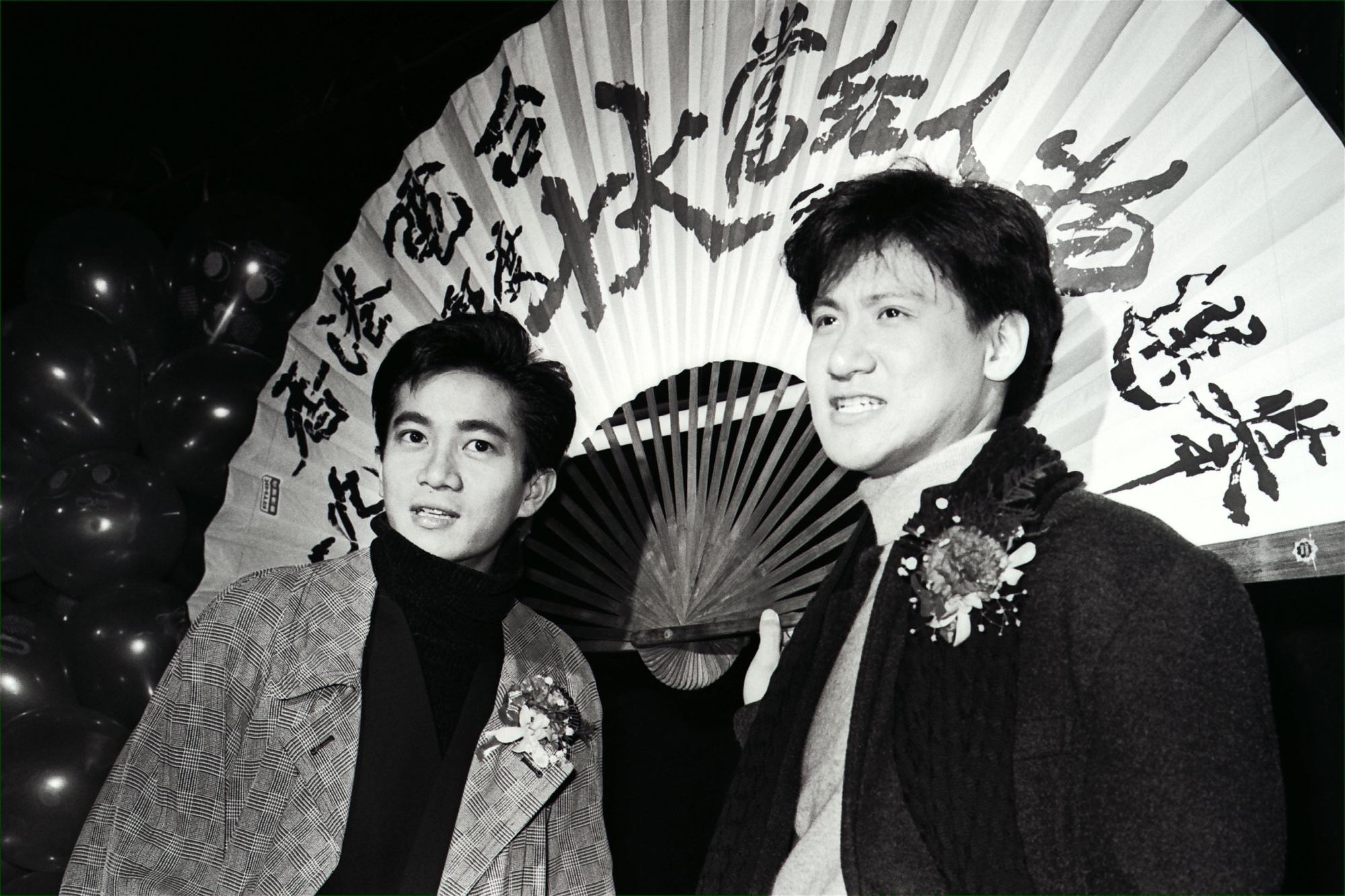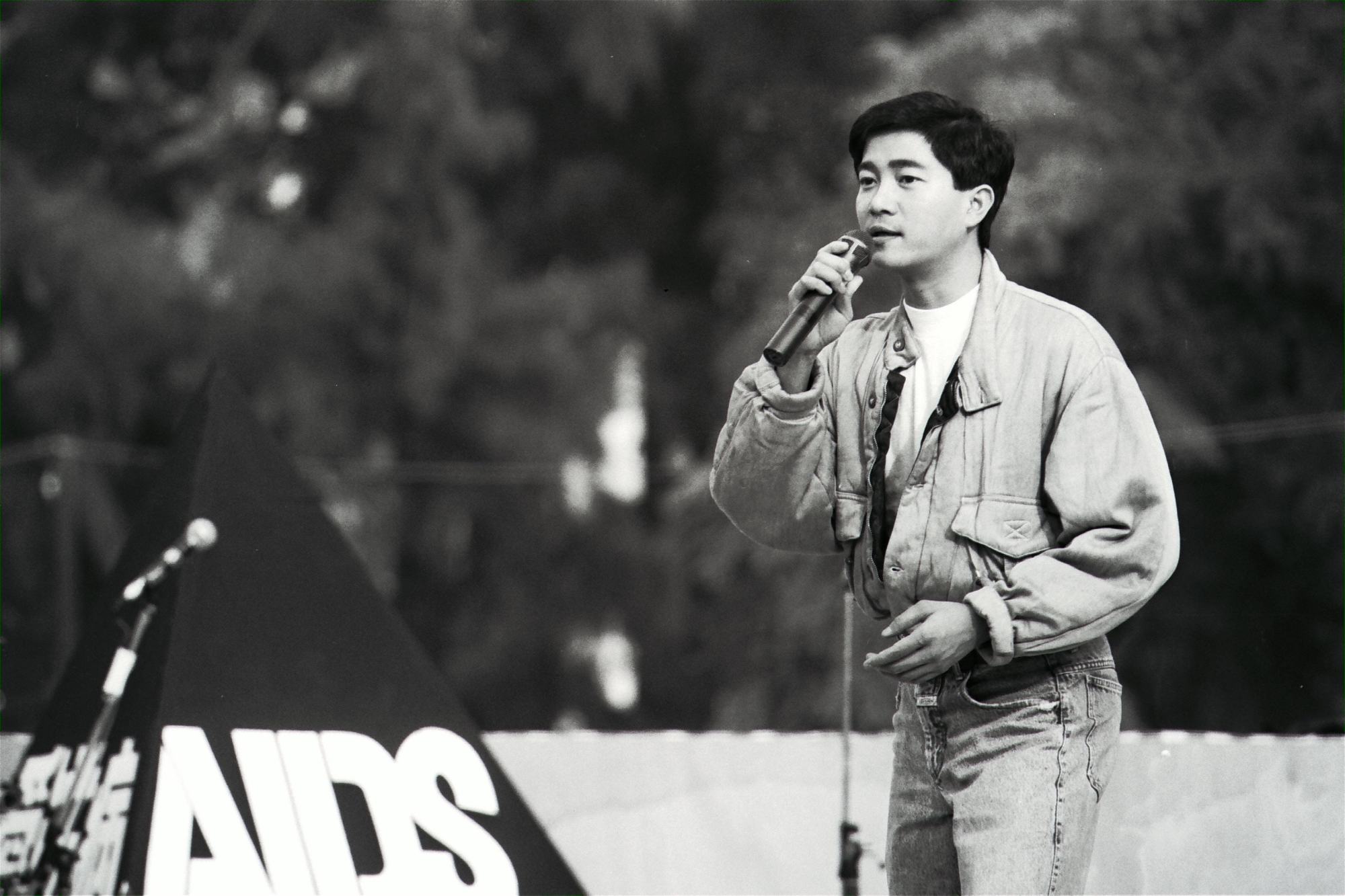In 1977 he won third prize on the show Hong Kong Pop Song Writing Invitation on TVB (Television Broadcasts) with his original English composition “The Rocky Road”.
The following year, he won first prize at the Hong Kong Yamaha Electone Festival performing the theme music from the film Close Encounters of the Third Kind. This earned him a singing contract with TVB and marked the start of his entertainment career.
In 1978, he made his acting debut in the TV drama Sweet Babe.
It was Tam Kwok-gei who recognised Chan’s talent. Tam signed him to his artist management agency Hollywood Casting Agency (HCA), and subsequently secured China a record contract with Hong Kong EMI.

Chan’s debut album, First Love, was released in 1979 and included his self-composed hit “Tears for You”.
The singer’s career took off as he captivated audiences with his Cantopop ballads. His soothing melodies and heartfelt lyrics struck a chord with fans in Hong Kong and beyond.
Among his signature songs were “Waiting”, “Life Expectation”, “Ripples”, “Loving You Alone”, and “Cherish Tonight”.

Chan received numerous accolades and achieved notable career milestones. His album Loving You Alone received five platinum certifications in Hong Kong.
Chan’s time at TVB led to one of the most remarkable friendships in Hong Kong’s entertainment history.

While Ho played mainly supporting roles during her short stint at TVB, it was enough for her to be part of the “it” crowd of the ’80s. She became friends with Chan when she played one of his girlfriends in the drama Breakthrough in 1981.
Chan and Ho partied a lot and were often photographed together. There were rumours that Chan gifted a set of pearl jewellery to Ho and that Ho replaced a gold watch that Chan had broken; there was also a paparazzi picture taken at Chan’s birthday party showing him resting his head on the shoulder of a beaming Ho.
When asked about their relationship, Chan and Ho would always answer that they were the best of friends, but that was not enough to quell the rumours.

In the end, Ho’s father, reacting to the rumours, started making condescending remarks about Chan, referring to him with a Chinese term used to describe street performers.
Ho ended up marrying the son of a shipping magnate in 1991, in one of the most lavish weddings in Hong Kong and Macau history. Chan attended the wedding; the tabloids portrayed him as heartbroken and pathetic.
The singer was always tight-lipped about his personal life. When asked about it, he quoted a Chinese saying that meant innocence would prove itself.
The last of Chan’s songs to hit Hong Kong’s Jade Solid Gold Top Ten was one of his greatest hits, “Life Expectation”, in 1989.
By that time, both Tam and Cheung had announced that they would no longer participate in awards ceremonies.
Cheung went further, announcing his retirement, despite only being in his thirties. Mui said she would not be performing any more concerts or receiving any awards, to make way for a new generation of artists.

People in the music industry began addressing Chan’s contemporaries using respectful nicknames. Mui was called Mui Jie (big sister Mui); fans of Cheung started affectionately calling him Gor Gor (big brother); and Tam was called Headmaster Tam, being a bit older than the other three.
There were no such nicknames for Chan, despite him being the only songwriter among the “Three Kings and a Queen of Cantopop”.

When Chan was seen checking out of a hospital in 1990, the tabloids started speculating that he had Aids. The virus was misunderstood and stigmatised at the time, linked to homosexuality, promiscuity and drug addiction.
When the singer announced his retirement in 1991, it engendered little shock or public reaction. When Cheung and Mui did the same thing they sold out their farewell concerts. When Chan began his farewell concert tour in Shanghai in 1992, it was reported that tickets for the Hong Kong leg weren’t selling.
There is still speculation about what happened on the evening of May 18, 1992. Chan was found unconscious at home and taken to hospital. It was rumoured he had taken a lethal cocktail of alcohol and sleeping pills.

The singer suffered brain damage and fell into a coma. He died nearly 18 months later, on October 25, 1993. He was 35.
Ho was one of the pallbearers at Chan’s funeral and was photographed crying in the arms of Chan’s mother.
Despite all the grief the tabloids gave him, Chan remained tight-lipped about his personal life before his death. When asked about it, he was famous for quoting a Chinese saying that meant innocence would prove itself.


